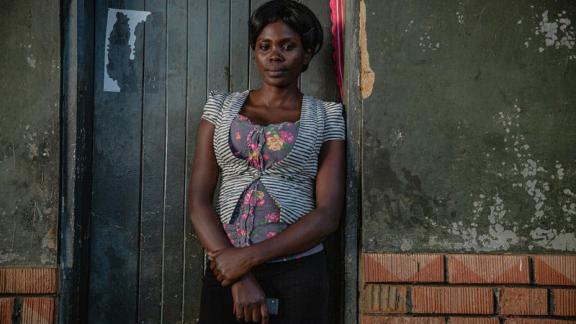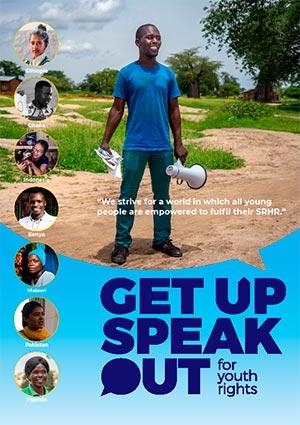The Get Up, Speak Out! initiative works with and for young people to overcome barriers such as unequal gender norms, negative attitudes towards sexuality, taboos about sex, menstruation, and abortion. Empowering youth communities - especially girls and young women - with information and knowledge about sexual and reproductive health, and the provision of access to health and contraceptive care, is at the heart of the initiative. Get Up, Speak Out! is an international initiative developed by a consortium of partners including IPPF, Rutgers, CHOICE for Youth & Sexuality, Dance4Life, Simavi, and Aidsfonds, with support from the Dutch Ministry of Foreign Affairs.
“I became a peer educator in order to help others make informed health choices”
Assinah, 24, peer educator
Growing up, Assinah saw the impact HIV had on her grandmother. This personal experience drove Assinah to help others by educating her local community on the importance of sexual and reproductive health by becoming a Healthy Entrepreneur through the GUSO project.
Assinah lives with her mother and daughter in Uganda’s Bugiri District. Information on sexual and reproductive health is scarce in this area, with an unmet need for contraception contributing to high rates of unintended pregnancies and STIs.
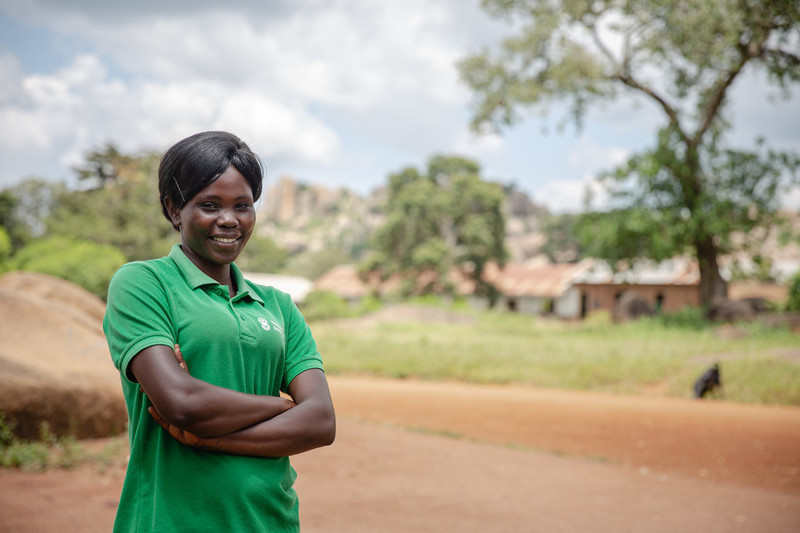
Assinah teaches her peers in a fun and educational way
Young people come to Assinah for condoms
“Before I started working as a Healthy Entrepreneur, it was very hard for young people in the community to get information on sexual and reproductive health. A woman from the village health team would visit us just three times a year. She was also the only one who could administer injectable contraceptives. Very few of us even knew about it.
At first, the community was not receptive and was doubtful of my work. They lacked confidence in my skills. But now, after using my products, they are welcoming and come to my consultations.”
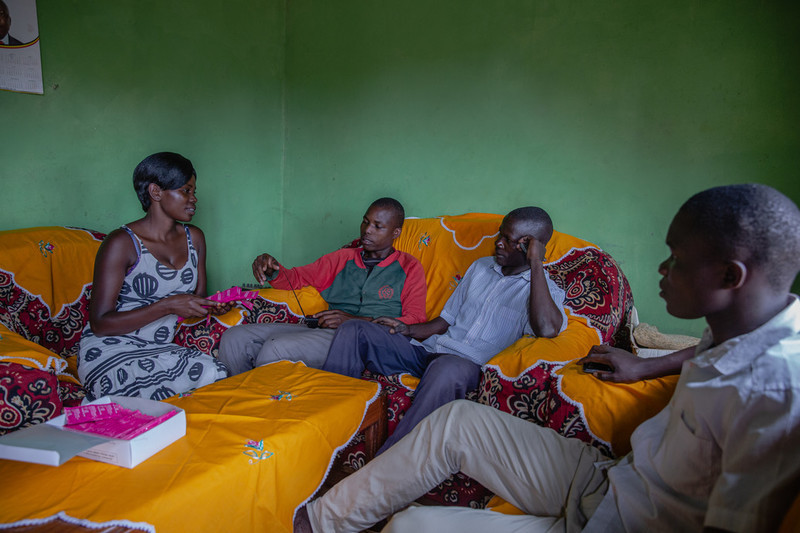
Assinah is trained to administer the injectable contraceptive
Local client, Joyce, receives Sayana Press
“Currently, I may distribute injectable contraceptives up to three times a week. It’s great. The women in the community see fewer side effects compared to other methods. It is also what I use myself.
A lady told me how she became pregnant, when contraceptives were out of stock at the health center. Now she buys injectable contraceptives from me, as she is not ready for another pregnancy.”

Keeping her community healthy and happy gives Assinah a sense of pride
Assinah talks to young people about sexual health
“The young people in the community have responded well to my work. They always ask me a lot of questions. Of course, some intend to challenge me, while others simply want to make sure they can trust the information. Through the distribution of condoms, I can really help prevent HIV among the young people in my community. It also makes me feel responsible. With the information I have given them I play my part in their life and the decisions they make.”
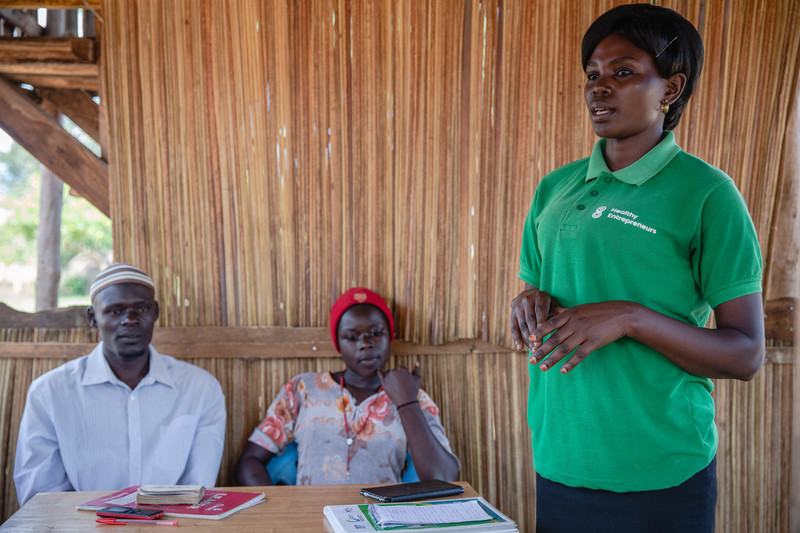
"I am glad I could enquire about sexual and reproductive health issues from a friend I can trust"
Assinah and her friend Lilian
“Thanks to my job, I’m well known and have many friends in the community. I was attracted to the fact that I would be selling medicine and other health products in my own community.
I saw that this would help me achieve my dream job: becoming a health worker. My expectations have been met; I treat people in my community, earn an income and have my own goat. I can provide for the basics of life.”

Assinah walks long distances across her district to reach her clients
Her income enables her to support her family
The profit Assinah makes enables her to run a small side-business, selling roasted chicken from her kiosk. She makes enough to support her family and pay school fees for her four-year-old daughter. On a good day, she earns enough for a lift on a motorbike on the way home. Yet, despite the early starts and long walks, she’s determined to continue her valuable work and save money.
“I will continue providing this support to my community. My dream is to enrol in a nursing course as soon as I have earned enough money.”
Photos: © Rutgers/Esther Ruth Mbabazi
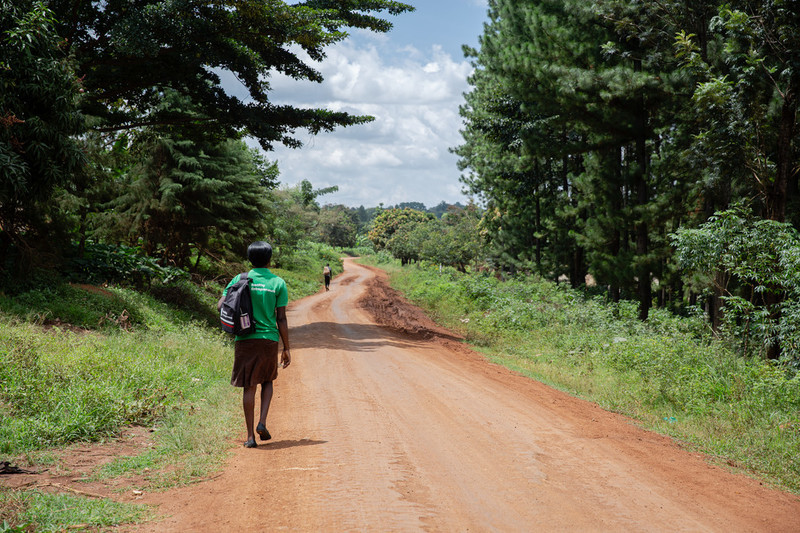
when
country
Uganda
region
Africa







